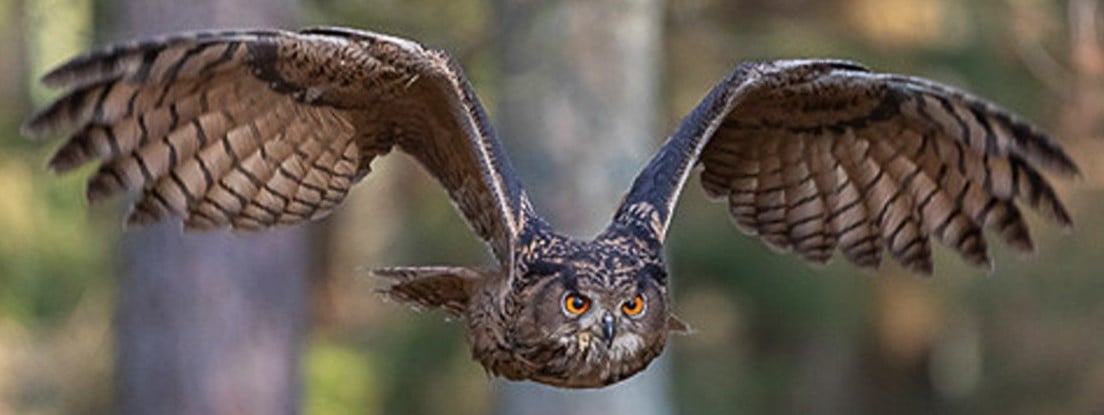Superbowl
For owls that are superb.

US Wild Animal Rescue Database: Animal Help Now
International Wildlife Rescues: RescueShelter.com
Australia Rescue Help: WIRES
Germany-Austria-Switzerland-Italy Wild Bird Rescue: wildvogelhilfe.org
If you find an injured owl:
Note your exact location so the owl can be released back where it came from. Contact a licensed wildlife rehabilitation specialist to get correct advice and immediate assistance.
Minimize stress for the owl. If you can catch it, toss a towel or sweater over it and get it in a cardboard box or pet carrier. It should have room to be comfortable but not so much it can panic and injure itself. If you can’t catch it, keep people and animals away until help can come.
Do not give food or water! If you feed them the wrong thing or give them water improperly, you can accidentally kill them. It can also cause problems if they require anesthesia once help arrives, complicating procedures and costing valuable time.
If it is a baby owl, and it looks safe and uninjured, leave it be. Time on the ground is part of their growing up. They can fly to some extent and climb trees. If animals or people are nearby, put it up on a branch so it’s safe. If it’s injured, follow the above advice.
For more detailed help, see the OwlPages Rescue page.
view the rest of the comments

Because sauce and horse are long and cross and boss are short, right?
I'm not a native speaker but our lord and savior Dr Lindsey made a great video about British English and what Americans get wrong about it.
For me as a second language learner, cross rhymes with boss but sauce neither rhymes with horse nor boss. But that's just me tho.
Great video! His stuff is brilliant. I'm a native speaker but every now and then one of his videos will pop up in my feed and I'll end up learning about how I talk lol. Highly recommended for anyone interested in fascinating deep dives into speech.
Whenever there are these kinds of threads there's always loads of people posting things like "sauce rhymes with boss not horse" or something.
This rhyming and text based approach is confusing because in different accents words might be pronounced differently than how the writer is pronouncing them and they may all rhyme or none of them may rhyme.
If you're not familiar with phonetic spelling (most people I know aren't) then audio clips with the differences are probably the way to go. Just typing random words isn't a great way of comparing accents.
Per the (extremely fascinating) video, it seems that phonetic spelling from the dictionary doesn't always capture the correct pronunciation, or mechanically what is happening with the mouth... E.g. US "blue" with the 'w' at the end where we release the lips when done with the o. Hm.
I hadn't really thought much about how, mechanically, one has to reposition one's tongue, jaw, and lips to shift between the end and beginning of words and that can lead to a glide(?) or modulation if we speak without stopping airflow between words.
I suppose we should think of pronunciation in terms of motor planning for tongue, jaw, lips, etc. to be more accurately descriptive.